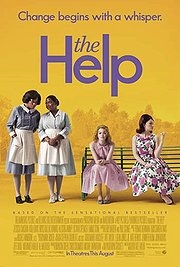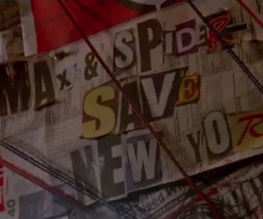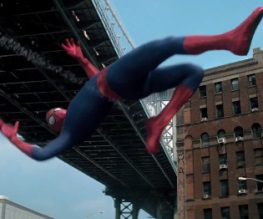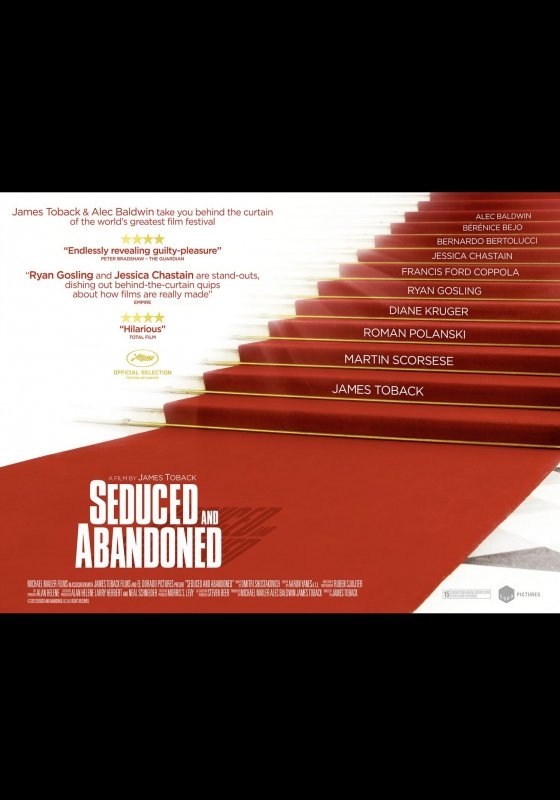The Help

Doing as much for racism as Mona Lisa Smile did for sexism (if you hate it then you better put some pearls on it), it’s easy to dismiss this adaptation of Katherine Stockett’s novel as just another soft-focus, goodies vs baddies morality flick heightened by a stellar cast. Yes that’s basically what it is, but this stellar cast includes the really proper stellar Alison Janney, and to be fair there’s also a lot of amusing stuff about toilets in there.
So, the year is 196-something, the town is Jackson, Mississippi and Ladies Who Bridge are ruling the roost. At the head of every table is Miss Hilly (Bryce Dallas Howard), an icily sophisticated young woman who’s mastered two arts: looking damned coordinated and being a total dick. Her cronies, whose very hair seems to wilt under Hilly’s sneery gaze, do their best to keep up with her but it’s pretty clear to everyone – and to Hilly most of all – that she’s got the town under her perfectly painted thumb. The only person who might prove to be a bit of a problem is Skeeter Phelan, an aspiring writer who’s just come back to Jackson after four years of college. If I say the words Played By Emma Stone and She’s Got Curly Hair, you’ll probably have an idea of where this is going.
Hilly, welcoming Skeeter and her disregard for follicle norms back into the fold, wastes no time in asking her sweetly whether she’d consider putting a new initiative into the town’s weekly newsletter – separate toilets for home-owners and their coloured help. “They carry different diseases to us”, she states firmly as they sit in the parlour of their mutual friend Elizabeth. Skeeter’s eyes flick briefly to the in-house maid, Aibleen (Viola Davis), who keeps hers down as she overhears the exchange and stoically continues in her duties of raising the children of the house. As a girl brought up by her maid Constantine, Skeeter just can’t seem to get behind Hilly’s fervent segregation tactics, and as Hilly becomes more and more adamant she instead she embarks on a project of her own – to document the real-life stories of the maids of Jackson.
Convinced she can get the long-suffering Aibleen on-board, Skeeter visits her in secret and begs for her participation. Trapped between fear of their discovery and longing to finally tell the world what it’s like to raise children only to have them turn into her oppressors, Aibleen and best friend Minny (Octavia Spencer) – a smart-mouthed maid whose quick temper has lost her more than one job – find themselves unable to resist the lure of Telling The Truth. But, as screenwriter and director Tate Taylor is keen to tell us over and over again, this is 196-something. And in 196-something, white people are bastards.
As a breezy, enjoyable and comely look at the civil rights battle, The Help is a perfectly solid – if a little patronising – two-hours worth of white guilt. Though the characters are basically either Good (Emma Stone, anyone black) or Bad (anyone white except Emma Stone) Taylor does a super job of giving everyone enough to do, showcasing heartfelt and believable performances from everyone on screen (possibly despite the script rather than because of it). Viola Davis and Octavia Spencer hold the whole thing together as the titular help; Davis’ beautifully understated Aibleen is able to say more with one baleful glance than most actresses manage in an entire running time, and she is matched perfectly by Spencer’s consistently hilarious Minny Jackson. Emma Stone does her best with a character that looks earnestly at other people for two hours, and Alison Janney predictably upstages everyone as a mother worried her only wild-haired daughter might turn out to be one of those lesbians she’s heard about.
The problem with The Help is that it plays out as if there’s never been a film made about this topic before. Though every scene is thoughtfully shot and well-played, it creaks with predictable lines, predictable noble/dastardly characters and a desire for the picturesque which counters any attempt at hard-hitting reality. With no real desire to say or do anything new, The Help instead takes us gently and happily down a road of enlightening nostalgia, meaning that you never quite feel like you’ve earned the inevitable music-swelling, eye-misting climax. The Help certainly showcases a lot of talent worth keeping an eye on, but it’s unlikely you’ll see the world any differently having watched it.









Recent Comments